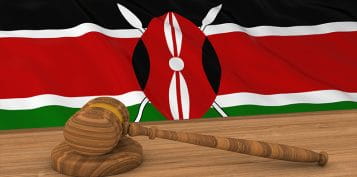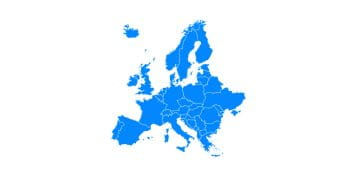Canadian Online Gambling Laws – Player’s Guide 2025
The Great White North has a ton to offer to locals and visitors alike, from the breath-taking wilderness and fine dining to endless entertainment and gambling. Sure, it might not be Las Vegas, but seasoned and casual players alike can enjoy a wide range of gambling activities. Join us and find out more about the Canadian online gambling laws before you start playing.
In this post, you will learn vital details about the online gambling laws Canada has at the moment. First, we will start by providing you with an overview of the rules and regulations in place. Then, you will read about the online gambling Canada laws enforced by the local government, followed by details about the regulatory bodies. Finally, we have prepared some interesting facts on the topic.
Overview of the Canadian Gambling Laws
Like most countries worldwide, Canada has a long and complicated history with gambling. In the beginning, many people could gamble in the Great White North, but things changed in the late 1800s. In 1892, the government passed legislation that outlawed all gambling activities in Canada. The laws surrounding gambling became more and more relaxed over time.
In the early 1900s, bingo and raffles were legalised only for charitable purposes. Shortly after, horse racing was legal once again in Canada. The biggest legislative change was in 1985 when the government legalised gaming machines. A few years later, gambling became more and more popular among players and with that, land-based casinos started to pop up. Here’s a list of the most important changes in Canadian gambling laws:
| ⚖️ Legislation | Year |
|---|---|
| 👨⚖️ Criminal Code enacted | 1892 |
| 🎱 Charity raffles and other non-profit gambling approved | 1901 |
| 🏇 Horse racing – track betting only | 1910 |
| 📜 Criminal Code changed to allow for lotteries | 1969 |
| 🏛️ Provinces allowed to run lotteries and lottery schemes, including gambling on computers, video devices, slots, and phone betting for horse racing | 1985 |
| 💻 Online gambling was legalised | 1996 |
| 🎲 Prohibitions against dice games removed | 1998 |
The North American country is made of three territories and ten provinces, namely Alberta, British Colombia, Manitoba, Nova Scotia, New Brunswick, Newfoundland and Labrador, Ontario, Prince Edward Island, Quebec and Saskatchewan. Like in the US and Germany, each has its own government entity with the power granted by the federal government.
This is important because every province in Canada has control over gambling activities within its jurisdiction. In other words, the exact gambling laws might vary from one place to another. There is so much to tell on that topic that we might reserve it for another time. In this piece, we’ll focus on the most important details surrounding the Canada online gambling laws.
Canada Online Gambling Laws
Furthermore, the Canadian gambling laws are very clear about online casinos within its territory – running gambling sites in Canada is strictly prohibited. However, this does not mean that Canadians cannot gamble online in the country. Technically, the laws do not prohibit online gambling activities. Hence, you can play at international casino sites that accept Canadians.

Since 2010, more than 300 legitimate online casinos have been launched in Canada, some of which can be found in our best online casinos in Canada list. This was possible because the Kahnawake Mohawk Nation is one of several self-governing territories within Canada. Therefore, it has the right to run a casino and issue licences to operators based within its jurisdiction.
Allow us to elaborate a bit. Canada outlaws running online casinos, which means that operators physically based in the country cannot launch a casino site. However, there are no laws banning Canadians from playing at offshore casinos. And since the Kahnawake Mohawk Nation is self-governing, operators whose servers are physically based there are considered offshore and legal.
Regulators and Gaming Authorities in CA
According to the online gambling laws in Canada, players can legally take part in activities such as sports betting, horse racing, lotteries and casino games regulated by the local authorities. Since the 1970s, each province was allowed to regulate and license gambling in their respective jurisdictions.
And like we mentioned earlier, there are 10 provinces in Canada, all of which have their own government entities. As a result, there are slightly different rules and regulations when it comes to gambling across the country. Therefore, each province has its own gaming authority. Here you can find a list with the Canadian gaming authorities per province:
- Alberta – Alberta Gaming and Liquor Commission
- British Columbia – BCLC
- Manitoba – Liquor and Gaming Commission of Manitoba
- New Brunswick – New Brunswick Gaming Control
- Newfoundland and Labrador – Service NL
- Nova Scotia – Alcohol, Gaming, Fuel and Tobacco Division Service of Nova Scotia
- Ontario – Ontario Lottery and Gaming Corporation
- Prince Edward Island – Prince Edward Island Lotteries Commission
- Quebec – Loto Quebec
- Saskatchewan – Saskatchewan Liquor and Gaming Authority
You may notice that we haven’t included the Kahnawake Gaming Commission here. This is because it is self-governing territory and does not fall under the same government branch as the rest. Nonetheless, it is still a legitimate and well-established gaming authority on the international market, but more on that in a moment.
The Kahnawake Gaming Commission
Now, let us tell you more about the Kahnawake Gaming Commission and how it is relevant to the Canadian online gambling laws. It regulates and licenses many online casinos, online poker rooms, sportsbook sites, and 3 brick-and-mortar poker rooms located on the Mohawk Territory of Kahnawake. The gaming regulatory body was first established in 1996 in accordance with the Kahnawake Gaming Law.
Furthermore, the Kahnawake Gaming Commission has jurisdiction only over operators physically located within its territory, which is technically in Canada. However, it is considered as a completely independent regulatory body. There are five main licences that the Kahnawake Gaming Commission can grant, namely Interactive Gaming Licence (IGC), Client Provider Authorisation (CPA), Secondary Client Provider Authorisation (Secondary CPA), Key Person Licence (KPL), and Poker Room Licence (PRL).

Every licence type has its own purpose – to make things easier, the gaming commission provides details for each type and its specific objectives. In addition to that, the Kahnawake Gaming Commission works with the Financial Services Regulatory Commission of Antigua and Barbuda, as well as the Lotteries and Gaming Authority of Malta.
Interesting Facts About Gambling in Canada
There are many things about the gambling industry in Canada, but we do not have the time to go through each of them. So, for your convenience, we decided to gather the most interesting facts about the Canadian gambling laws in the listing below, so make sure to check it out.
- Minimum Gambling Age – It varies from one province to another. In most places, it is 19, with the exception of Quebec, Alberta, and Winnipeg, where it is 18.
- No Taxes on Winnings – Under Canadian gambling laws, casino winnings are considered windfall, therefore, are not subject to taxation.
- Largest Entertainment Industry in Canada – Currently, the gambling industry is the source of more than 250,000 jobs in Canada.
Canadian players can choose from a variety of online and offline gambling activities in the country. You can enjoy all your favourite games from the comfort of your home thanks to the best roulette sites in Canada or even head out to the nearest land-based casino or horse racing track. The gaming opportunities are endless in the Great White North.
Popular Questions
We hope that our guide to the Canada online gambling laws has addressed all your concerns about playing in the country. We tried to cover as much as possible in this post, but we might have missed something. Thus, we prepared answers to the most commonly asked questions on the topic.


